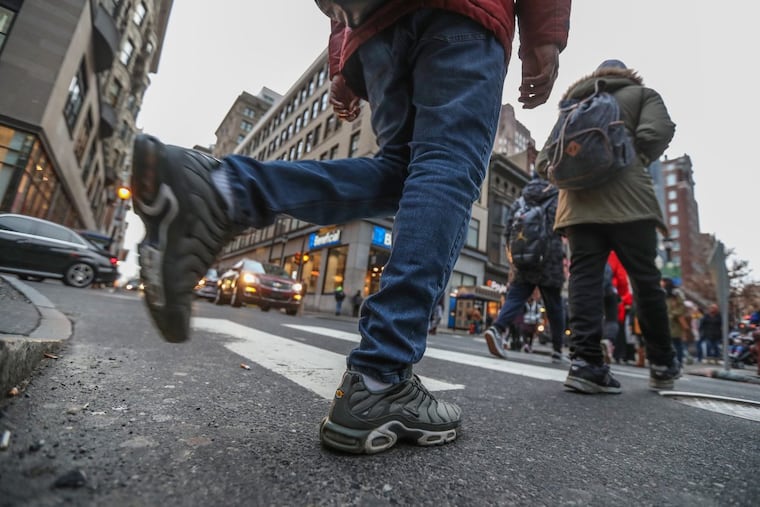Police union opposes using civilian workers for traffic enforcement in Philly
Philadelphia's police union could pose a formidable obstacle to plans to create a civilian traffic enforcement force.

Philadelphia is exploring turning to civilian traffic enforcement to ease gridlock on the streets, but the idea may get jammed without the support of state legislators and city police.
City Council President Darrell L. Clarke on Thursday introduced a resolution to hold hearings on how a civilian public safety officer position could be created in Philadelphia.
The local police union could be a roadblock.
"There's no gray area here," John McNesby, president of the local Fraternal Order of Police lodge, said Thursday. "That's police work and police work only."
McNesby said he would be willing to talk about Clarke's proposal, but with the information he had Thursday, he would consider going to the state labor board to block the creation of civilian public safety officers. The Philadelphia Police Department expects to put 370 new officers on the street by September, and some would be assigned to traffic enforcement, police officials have said.
The law may be on McNesby's side. Pennsylvania statute describes traffic enforcement as a power reserved for state and local police. It could take action from Harrisburg to allow the city to create a civilian enforcement position.
Civilian traffic enforcement could free police to focus on crime while still putting people on the street to help with what officials have said is a growing traffic problem in the city's busiest areas, including Center City. The idea was embraced by people concerned that traffic congestion is both dangerous and a hindrance to the city's economic growth.
"I think the Council president is absolutely on target with the need to think holistically on enforcement," said Paul Levy, head of the Center City District, who described streets clogged with cars, trucks, bikes, and pedestrians. "You need to accommodate all modes, and you need a new enforcement strategy for all modes."
Civilian officers would be able to issue traffic citations, Clarke has said, but would not carry firearms or have the ability to make arrests. He envisioned their being hired through the Police Department, he said. The mayor's office declined to discuss Clarke's resolution Thursday, but administration officials have said there could be challenges creating a new type of civil service job.
This isn't the first time Philadelphia has explored the idea of using civilians to supplement police. In 2003 the Parking Authority proposed giving traffic enforcement powers to its workers. Before that, former Mayor John F. Street, as a councilman, considered the idea. An obstacle then, as will likely be the case now, is the union representing police workers.
Clarke's resolution comes as some of the details of Mayor Kenney's safe streets initiative are beginning to take shape. City officials said last week that they wanted more traffic enforcement in Philadelphia but talked about using sworn officers supplemented by red light cameras, speed cameras, and radar detectors.
The city is using the Vision Zero philosophy, which encourages redesigned streets and education as the most important tools to reduce speed, which the National Transportation Safety Board has found is responsible for about a third of traffic-related fatalities nationwide. While enforcement is part of Vision Zero's approach, advocates say it should be used sparingly and with a focus on the most dangerous kinds of driving behaviors.
Clarke has received differing input from lawyers on the authority the city has to create the positions, and part of the reason for the hearings is to determine how other cities have addressed the problem, said Jane Roh, a spokeswoman for the Council president.
"Having a public airing-out on all this will help us determine a consensus," she said.